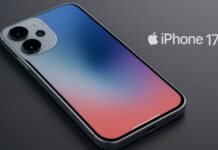In complete contrast to what Apple does for iPhone 7, those from Intel claim that the future of audio ports lies in USB-C and not in the Lightning technology used by the Apple company in its own iDevices, the Americans presenting yesterday how this standard will allow the replacement of the 3.5mm port in almost all mobile terminals and not only.
Intel claims that USB-C can play digital audio sounds without problems and that it is much more versatile than the solutions offered by other companies, in the case of Lightning, and the truth is that they are right, because we are talking about a universal standard and easy to adopt , compared to one used exclusively in certain products.
Those from Intel claim that they managed to improve the USB-C standard, so that the energy consumed by the headphones that are connected to these ports is greatly reduced without affecting the quality of the digital sounds played for users, so we are talking about a successful innovation of to the Americans, at the expense of Apple.
Although Apple uses a USB-C port in the 12-inch MacBook, it is extremely unlikely that it will be used in iDevices, but it is not at all excluded that we will see it in other Mac models that Apple they are preparing to launch them on the market in the next period, so that it should not be completely ignored.
At the Intel Developer Forum in San Francisco on Tuesday, Intel architects Brad Saunders and Rahman Ismail sketched out a coming USB audio standard that could help push the 3.5mm jack aside. The new specification, due this quarter, adds features to ensure a USB headphone doesn't drain too much battery power and defines how buttons for pausing music or lowering volume work. The work "will really make USB Type-C the right connector for audio," Saunders said.
The Samsung Galaxy Note7 is the latest smartphone that has an integrated USB-C port, but of course it will not be the last, the standard being extremely important for reducing fragmentation among accessories for mobile terminals, and at one point or another, those of at Apple they could adopt it, with or without reluctance.































